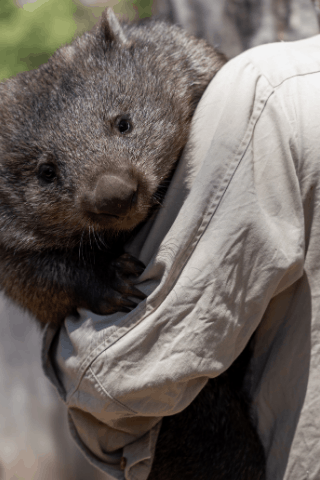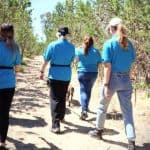If you have a passion for animals, wildlife and conservation, you may like to consider a career in zookeeping! A zookeeper’s job is a rewarding and sometimes challenging. Each day will be filled with various tasks, which can be physically, emotionally and mentally demanding. So, let’s find out more about zookeepers and how to become one.
Why consider becoming a zookeeper
Fancy the idea of taking care of different types of animals? If caring for different kinds of animals, including large predators, venomous snakes, and native Australian animals, including kangaroos and koalas, inspires and excites you, then zookeeping might be for you. Some reasons you may consider a career as a zookeeper include the following:
- Playing an essential role in wildlife conservation and saving endangered species: Many endangered species are in danger of extinction because they lack proper wildlife care. Zookeepers play an essential role in helping to protect endangered species and in wildlife conservation.
- Reward: Helping save animal species facing extinction and taking care of animals can be quite fulfilling and rewarding, especially if you work for organisations that prioritise the well-being of animals and their future.
- Taking care of a variety of species: Unlike working with companion animals such as dogs and cats, zookeepers work with a broader range of animals, making a working week not only interesting but engaging too.
- Sharing knowledge: Zookeepers, particularly when working with exhibited animals, are uniquely positioned to share knowledge about animals and their environments with the general public, including children.
- Forming special bonds with animals: Throughout their career, many zookeepers have an opportunity to form a close relationship with an animal or animal species. This is a unique experience for anyone dedicating their career to animal care.

Zoos and the role of exhibited animals
Exhibited animals in zoos are selected species that are displayed to the public within a controlled environment of a zoos or more formally referred to as zoological parks. These animals are typically chosen for their educational, conservational, and recreational value. Zoos aim to provide a space where people can learn about animals and wildlife, fostering a connection to nature and raising awareness about conservation issues.
Get Certified
Study with exhibited animals
Exhibited animals serve as ambassadors for their wild counterparts, helping to highlight the importance of habitat preservation and species protection. The link between exhibited animals and conservation is fundamental in most progressive modern zoos and an plays an important part of a zookeeper’s everyday role.
What does a zookeeper do?
Zookeeping isn’t just about being close to wild animals and feeding lions with fresh chunks of meat. Although it does involve the preparation of food for the animals, many other equally important tasks will require your attention. Zookeeper’s responsibilities include the following:
Care and maintenance of animal spaces
If you are passionate about the welfare of animals, you will always want them to stay in a safe, comfortable and clean environment. That means you would be responsible for the cleanliness of their spaces, right from where they sleep to where they play or rest during the day. This would include disinfecting their enclosures to ensure the animals are not exposed to harmful germs. A safe and comfortable environment also includes providing suitable activities and forms of enrichment.
Creating and implementing zoo enclosure enrichment activities
Zookeepers create and implement enrichment activities to keep animals mentally and physically stimulated. These activities mimic natural behaviours and help to engage animals thereby reducing boredom and destructive behaviours.
Animal nutrition and feeding regimes
Zookeepers are responsible for preparing and providing appropriate diets for the animals in their care. They must ensure that each animal receives the proper nutrition and dietary requirements. This is frequently done under the advice and recommendations of veterinarians.
Observation and record keeping for animals
A zookeeper needs to keep detailed records about each animal in their care. The details include the animals’ names and ages, nutritional diaries, any treatments the sick animals are undergoing, and any other important information necessary for their well-being, such as changes in their behaviour or demeanour. Detailed, accurate record-keeping plays a critical role in assessing the progress and welfare of the animals under your care and in deciding if any further measures or improvements are necessary.
Caring for injured and ill animals
Animals, like humans, require medical attention from time to time. As a zookeeper, one of your responsibilities would be working with animal health care professionals such as veterinarians and veterinary nurses to ensure sick animals receive the care and attention they need to recuperate.
Capturing and restraining animals
From time to time, you may need to help other zoo personnel capture and restrain animals for animal health care checkups, maintain enclosures, or relocate an animal. In some zoos, you may even be required to capture and restrain animals in the wild, including those threatened by extinction through natural attrition or human activity and those that require treatment and rehabilitation.
Zoo visitors and education programs
Many zoos rely on human visitors to fund their programs. These programs also allow zoos to educate the community about animal conservation and their environments. As a result, zookeepers are often required to maintain facilities to accommodate visitors. They may also be required to conduct tours, be involved in zoo experiences and provide helpful information about the zoo and the animals.
Important steps to becoming a Zookeeper
Becoming a zookeeper may be quite appealing, especially if you have a soft spot for wildlife care and conservation. But the process of applying for this position may be complicated and competitive. Zoo’s Victoria estimates that there are approximately 150 zookeepers in major zoos across Australia, making it a competitive career to enter. Here are some helpful steps to help you secure a zookeeper’s position:
Obtaining a qualification in animal care
In Australia, there is no set qualification required to become a zookeeper. However, you will face intense competition to secure an entry-level zookeeper position. For this reason, you will stand a better chance if you have a related qualification and experience working either with animals or in a zoo or captive animal environment. Here are some recommended courses of study:-

Successful completion of this course prepares students for pathways to the following study options:
- Certificate II in Animal Care (Exhibited Animals)
- Certificate III in Animal Care Services
- Certificate III in Wildlife and Exhibited Animal Care
- A degree in Zoology, Science, Wildlife Conservation, Veterinary Nursing, Biology, or other animal-related courses.
Get experience working with animals
To prepare for a zookeeping job, it is vital to get some experience working with animals first. Look for a paid or volunteer experience working with animals.
Maintain physical fitness
Zookeeping is a physically demanding job, so you may be required to demonstrate a level of fitness and endurance to complete your daily tasks. Most positions will also require you to work approximately 8 hours every day, the bulk of it outdoors, regardless of the weather.
The physically demanding tasks include lots of:
- walking
- shovelling
- raking and brooming enclosures
- repetitive lifting
- pushing loaded wheelbarrows.
For your passion of animals to translate into the demanding but hugely rewarding zoo keeping job, the two best steps you can take are gaining experience working with animals and obtaining a relevant qualification. If you have any questions about this topic, please contact us for further information.

About AVT
We have been training animal care, animal behaviour and training, equine care and veterinary nursing students for over 25 years in Australia. Students who undertake AVT courses range from high school-aged students just starting their pre-vocational journey right through to mature-aged students seeking an alternative career path. Graduates are highly respected and sought after by industry professionals, businesses and organisations. If you want the background knowledge and skills to help you secure your career in the animal care industry, check out our qualifications here or gain new skills by studying one of our short courses.
Courses you may like
Online
ACM20121 Certificate II in Animal Care (Online)
Studying Online
Animal Care Online Course
On-campus
ACM20121 Certificate II in Animal Care (Exhibited Animals)
Study at Landsdale Farm









